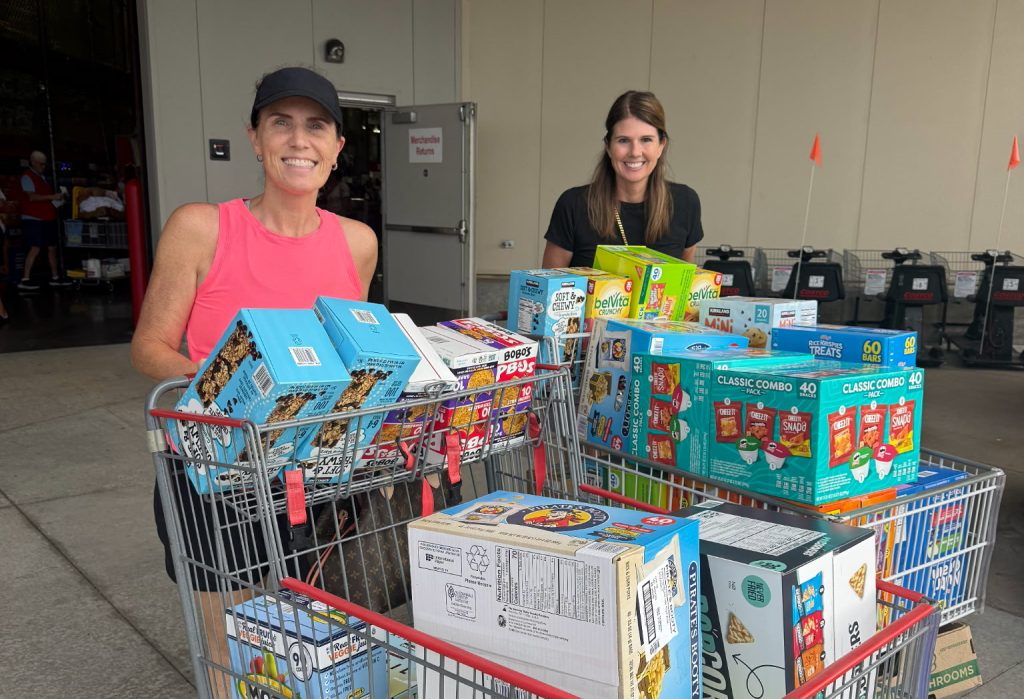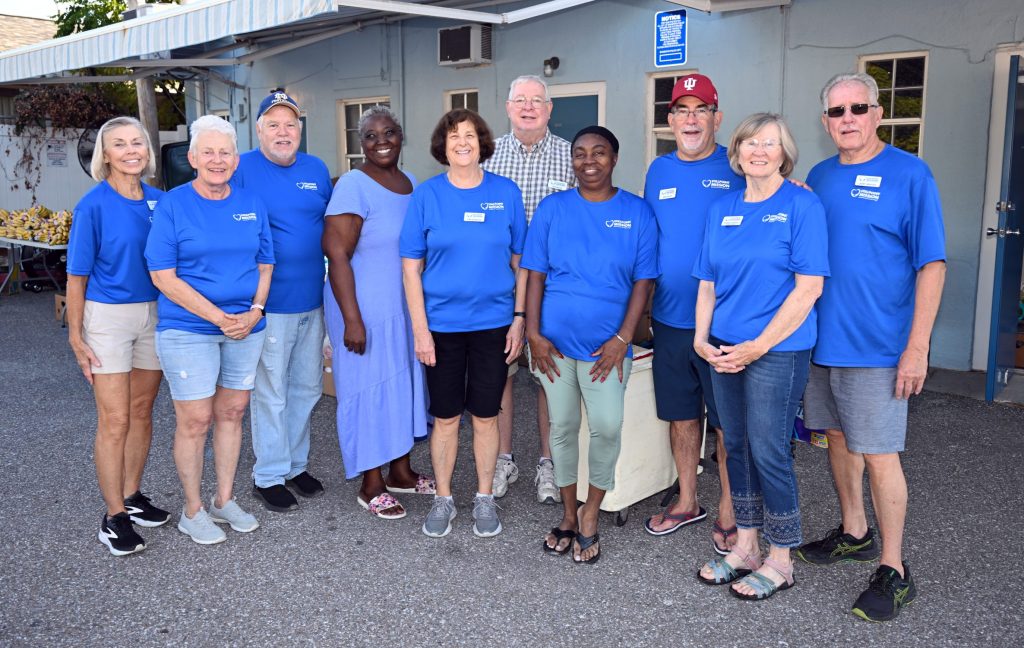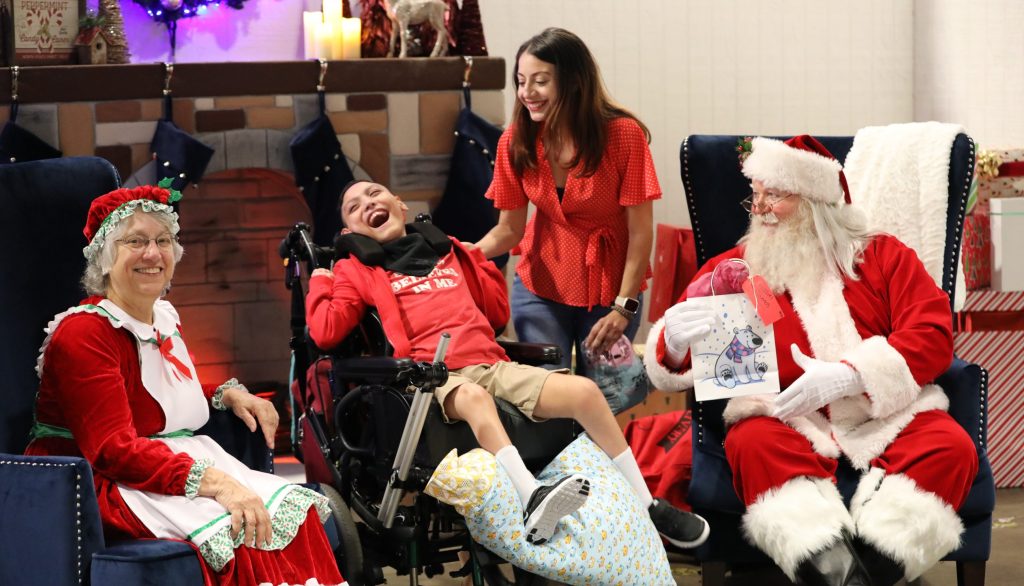WORDS: Shannon Evans
PHOTOS: Wendy Dewhurst
What if foster care wasn’t just about providing a bed, but building a future?
Decades ago, Graci McGillicuddy asked that question as she worked with children in Florida’s child welfare system. Kids shuffled between homes, struggling with untreated trauma and a lack of stability. Graci saw they needed more than temporary solutions. What if they had a place where they could heal, grow, and believe in a worthwhile future?
From that vision, All Star Children’s Foundation was born. After a $20 million capital campaign, the foundation broke ground on its campus in November 2017 and, by March 2020, opened its doors—just as the world shut down.
Five years later, with its research-based approach, trauma-informed therapy programs, and a mission to break the cycle of abuse, this innovative foster care organization is redefining how we care for our most vulnerable children.
A Different Approach
All Star offers a comprehensive range of programs designed to support children in care, their families, and the professionals who work with them. These programs fall into three key areas:
- The Campus of Hope and Healing provides a nurturing and trauma-informed environment where kids receive personalized care and evidence-based support to help them heal and thrive.
- Outpatient services help children and families in the community access critical mental health services and resources.
- Outreach and training programs equip foster parents, educators, and professionals with the skills and knowledge needed to best support children who have experienced trauma.
 “We knew we had to create something different,” says Denise Marzullo, who took over as CEO of All Star in July 2023. “The traditional foster system wasn’t focused on addressing the deep trauma these children have faced. Our approach combines science, therapy, and compassion to ensure every child gets the support they need.”
“We knew we had to create something different,” says Denise Marzullo, who took over as CEO of All Star in July 2023. “The traditional foster system wasn’t focused on addressing the deep trauma these children have faced. Our approach combines science, therapy, and compassion to ensure every child gets the support they need.”
So, what do these programs look like in the everyday?
The Campus: Healing Starts Here
Step onto the foundation’s beautiful five-acre campus, and you’ll discover a peaceful oasis where children in foster care get a second chance at childhood. A butterfly garden, colorful playground, and an outdoor movie theater offer moments of fun. At the community clubhouse, kids gather for tutoring, art classes, music lessons, and special events. Many of these activities are part of All Star’s budding Enrichment Program, where, through experiences with art, music, animals, sports, yoga, and more, kids can discover the goodness in life.
But perhaps the campus’s crowning glory is its six individually licensed, 3,000-square-foot family foster homes. Bright and welcoming, each home is designed with comfort and safety in mind—no long, dark hallways—and is especially convenient for child care. That means a large kitchen and communal space, plenty of seating, and a spacious laundry room with two washers and two dryers!
Aside from giving children a beautiful place to live, All Star supports and cares for them the moment they step onto the property.
“Kids often arrive in the middle of the night with nothing but a trash bag,” Denise explains. “Can you imagine? You’re already scared, and then you’re handed a trash bag to carry your whole life in. That’s why one of their first activities on campus is a visit to our boutique. It’s filled with new-with-tags clothes, toys, stuffed animals, blankets, jewelry, hair accessories, all the things. And every child gets a new suitcase and duffel bag so they can start fresh with dignity.”
That care extends to birthdays and holidays. Many foster children have never had an elaborate birthday cake, party, or presents, but during monthly birthday parties in the clubhouse, every child gets their moment to be celebrated. In December, the clubhouse transforms into a holiday market. Every child lists 10 people they want to shop for: foster parents, teachers, or their biological family. Staff members stock the clubhouse like a mini store, and kids choose presents for their loved ones.
“There’s something special about letting the children who live on our campus experience the joy of giving,” Denise says. “They put so much thought into each gift. It’s amazing to watch.”
Outpatient Services: Caring for the Community
While All Star’s campus provides a safe, nurturing place for many children, countless others in foster care still need help. Up to 80% of children in foster care struggle with mental health challenges, far more than kids in the general population. Without the right support, they face higher risks of homelessness, incarceration, early pregnancy, and serious health issues later in life.
 All Star’s outpatient services work to give kids the specialized care they need, no matter where they’re placed. In July 2023, Florida passed a law requiring that every child entering foster care receive a trauma screening within 21 days of their shelter hearing. All Star helped pilot this program in Circuit 12 and now runs a Specialty Screening and Assessment Clinic, offering comprehensive trauma assessments for children six and older in Manatee, Sarasota, and DeSoto Counties.
All Star’s outpatient services work to give kids the specialized care they need, no matter where they’re placed. In July 2023, Florida passed a law requiring that every child entering foster care receive a trauma screening within 21 days of their shelter hearing. All Star helped pilot this program in Circuit 12 and now runs a Specialty Screening and Assessment Clinic, offering comprehensive trauma assessments for children six and older in Manatee, Sarasota, and DeSoto Counties.
“In addition to trauma screenings and assessments, we’ve added behavioral and developmental evaluations,” says Stephen Fancher, Chief Advancement Officer. “We look at IQ, developmental concerns, and other things often tied to past trauma. Catching these early helps us connect kids to the right services before problems get worse.”
Screenings and evaluations tip the first domino, but real healing takes time, consistency, and support. All Star’s trauma specialists help children work through emotional and behavioral challenges and support caregivers in building strong, healthy relationships with kids in their care. Through mental health therapy, psychological and psychiatric evaluations, medication management, and occupational therapy, kids get the full support they need. All Star also uses treatments like Parent-Child Interaction Therapy (PCIT), Trauma-Focused Cognitive Behavioral Therapy (TF-CBT), and Eye Movement Desensitization and Reprocessing (EMDR), a therapy first developed to help military veterans with PTSD.
This intricate, nuanced program is truly a team effort. Every week, a multidisciplinary team comes together to check in on each child’s progress, making sure child welfare staff, guardians ad litem, foster parents, birth families, schools, and other key providers are all on the same page.
With everyone working together, kids don’t just get by. They get better.
Outreach and Training: Shoring Up the Support System
When programs and processes bring positive change, it’s worth sharing them more widely. Another way All Star is transforming foster care is by supporting the people who impact a child’s life the most: birth families, foster parents, and child welfare professionals.
Birth Families
The right therapies make a world of difference, but a child’s healing accelerates when the connections that matter most are maintained. All Star helps kids keep safe, supportive relationships with their birth families whenever possible.
 Foster parents establish open communication with birth families from day one, if possible, and make sure they are included in their child’s care in meaningful ways. Birth families can visit regularly, attend therapy sessions, and can access critical resources, all which serve to strengthen their role in their child’s life. All Star is also working with the iCARE Collaborative to develop a nine-week supportive visitation program, which will help parents build positive interactions, manage emotions, and connect more deeply with their children.
Foster parents establish open communication with birth families from day one, if possible, and make sure they are included in their child’s care in meaningful ways. Birth families can visit regularly, attend therapy sessions, and can access critical resources, all which serve to strengthen their role in their child’s life. All Star is also working with the iCARE Collaborative to develop a nine-week supportive visitation program, which will help parents build positive interactions, manage emotions, and connect more deeply with their children.
Foster Parents
All Star understands the crucial role foster parents play in helping children in care thrive. Aside from attending support groups, every foster parent on campus undergoes specialized training to help them build a home environment where kids feel secure, valued, and seen.
Foster parents also use the Resource Parent Curriculum (RPC), a 16-hour course that teaches them how trauma affects children and how to respond with patience and care. They take part in the Child-Adult Relationship Enhancement (CARE) workshop and gain practical skills for interacting with kids and teens who have experienced trauma.
Child Welfare Professionals
All Star’s impact extends even beyond District 12. The foundation has recently worked with state leaders in Tallahassee to expand trauma-informed care across Florida and is collaborating with child welfare organizations in Miami and California to share best practices with more communities. Recently, All Star brought together 40 clinicians and mental health leaders for a Learning Collaborative around EMDR. As they train more professionals in trauma-informed therapies, their circles of influence widen, and foster care moves closer to its purpose: less like a Band-Aid and more like life-saving surgery.
Safe, Loved…Home
All Star Children’s Foundation is a safe haven, a wealth of support, and a team of advocates cheering on every child. Together, these create the real magic of this organization: the idea that life-changing transformations begin in the small moments. A bedtime story in a safe home. A hug after a hard therapy session. Blowing out birthday candles for the first time. The excitement of choosing the perfect gift for someone special. These moments build trust, restore hope, and remind a child that they are worthy of love.
Because it’s as true for kids in foster care as it is for all of us: a feeling of belonging changes everything.
- For more information about All Star Children’s Foundation, visit www.allstarchildren.org. Scan the QR code to watch an informational video.





